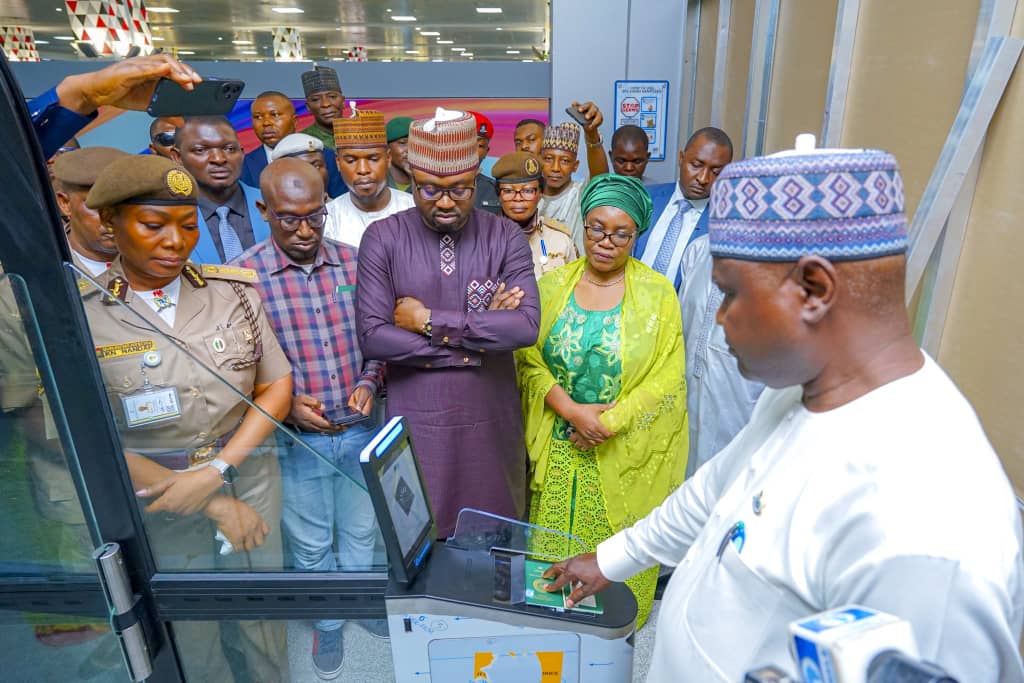One Italian in, 1907 dead
By Adedotun Ajayi
|
The coronavirus disease of 2019 (COVID-19) pandemic shocked the world, overwhelming the health systems of even high-income countries. Predictably, the situation has elicited social and medical responses from the public and governments, respectively.
The Federal Ministry of Health confirmed the coronavirus disease (COVID-19) case in Lagos State, Nigeria. The case, which was confirmed on February 27, 2020, is the first case to be reported in Nigeria since the beginning of the outbreak in China in January 2020.
The case is an Italian citizen who works in Nigeria and returned from Milan, Italy to Lagos, Nigeria on the 25th of February 2020. He was confirmed by the Virology Laboratory of the Lagos University Teaching Hospital, part of the Laboratory Network of the Nigeria Centre for Disease Control. The patient was clinically stable, with no serious symptoms, and was managed at the Infectious Disease Hospital in Yaba, Lagos.
In March 2020, borders were shut, lockdowns imposed, interstate travel banned, and offices, clubs, and services considered to be non-essential closed. The public sector has also been affected and the low economic activities especially in the oil and gas industry, trade and manufacturing as well as services have significantly impacted government’s revenue, leading the Federal Government to revise the 2020 budget down by more than N71 billion. COVID-19 has undoubtedly affected every aspect of our lives.
From the moment the first case was reported in Nigeria, the Nigerian government and its different agencies initiated several health, economic, security and social responses to contain the disease and its impact on society. One major response is the government-funded N500 billion COVID-19 crisis intervention fund, and enhanced support to states for critical healthcare expenses.
Responding to the outbreak has required the involvement of multiple government institutions and development partners. Some of the key measures Nigeria put in place to respond to the pandemic, include setting up the presidential task force, the Nigerian Presidency provides leadership for policy direction and activities of the various Ministries, Departments and Agencies (MDAs). With the COVID-19 outbreak, the full machinery of the presidency was deployed in response to the outbreak. The president first banned flights from countries with high rates ongoing transmission of COVID-19 on March 18, 2020, and 5days later announced a total closure of the nation’s airspace and land borders.
The public health response to the outbreak rests with the Federal Ministry of Health (FMOH) under the leadership of Dr Osagie Ehanire. However, the COVID-19 response has also required a multi-stakeholder, multi-agency collaboration as other relevant MDAs have been incorporated in to contribute their expertise to the response. The FMOH activated a National Emergency Operations Centre (EOC) for COVID-19, which is domiciled at the NCDC. The EOC is leading the national public health response to the COVID-19 outbreak in Nigeria, and is made up of different teams (pillars) responsible for different areas of the response, such as risk, communication, infection prevention and control and case management, with state EOCs leading the response at the state level. The FMOH through the NCDC has led the risk communications, producing health promotion materials in different languages targeting various groups including religious and traditional leaders, as well as self-isolation guidelines for males and females.
According to Dr Israel Babalola “Government is to be applauded for granting waivers for importation of medical equipment but we are saying that government can go a step further and grant waivers for importation of pharmaceuticals into the country including drugs currently in use to manage COVID-19 patients. This will lead to crashing of prices of medicines, which have skyrocketed since advent of COVID-19, the government have done everything in their power so far to prevent the virus, but the question is are the people ready to comply? I’ve heard series of people say Corona is not real, sadly it is not their fault, public health education should be done from time to time, to educate this people of their ignorance. If COVID-19 is spreading in your community, stay safe by taking some simple precautions, such as physical distancing, wearing a mask, keeping rooms well ventilated, avoiding crowds, cleaning your hands, and coughing into a bent elbow or tissue. Check local advice where you live and work”
According to Dr Abiola Ojo “The Nigerian government has taken numerous health, social, and economic measures to cushion the impact of COVID-19. Multi concerted efforts have been put in place to contain the pandemic. Both short and long term measures have been put in place, not just by government, but citizens as well, including non-governmental organisations (NGOs). I must commend government for the role they have played so far; creating awareness of the pandemic, making palliatives available even though some people complained it did not get to them, introducing the lockdown and interventions to healthcare workers.
Despite all these however, the number of new cases keeps increasing on daily basis, so also the number of deaths. It means the infection is still on the rise within the communities, especially with the lifting of lockdown by government.
Presently there are 155,657 confirmed cases, 19,909 active cases, 133,841 discharged cases and 1,907 death.










